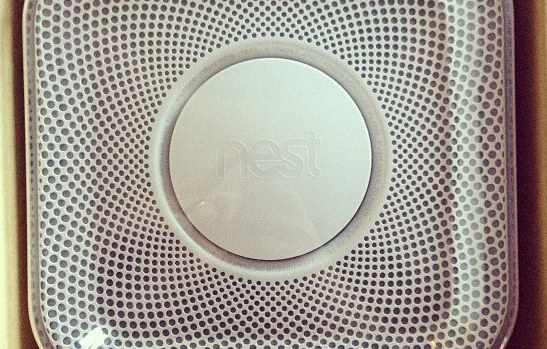Following the discovery of a potentially dangerous defect, Nest Protect smoke and carbon monoxide alarms are under a partial recall and all new sales have been halted, Nest Labs announced in a press release. The problem lies with the Nest Wave feature, which allows users to mute the alarm with a simple wave of the hand. The company is concerned that the feature “could be unintentionally activated. This could delay an alarm going off if there was a real fire.”
A Remote Fix for Wi-Fi-Connected Users
Most Nest Protect smoke alarms are designed to be connected to Wi-Fi; Nest Labs has already fixed systems that have Internet connectivity by remotely disabling the wave feature. Owners who can, but do not ordinarily, connect their units to the Internet are urged to do so. Upon connecting, the problem will be fixed.
Any user who can connect to the Internet need not return the product; the physical recall applies only to owners who cannot connect their Nest alarms.
New Sales Halted
Despite the quick fix, the company has stopped all sales of new Nest Protect smoke alarms, Gigaom reports. Nest Labs plans to fix the software to enable the Nest Wave feature to be used safely before selling new units. With the additional safety approval process required for the United States, Canada, and the United Kingdom, it will likely take more than two to three months before the company can begin selling new units. At that time, the wave feature will be turned on again for existing units.
Nest Protect Smoke Alarms Still Expensive, Not So Different
The wave feature, which remains unavailable for now, is one of the main selling points of Nest Protect smoke alarms, which were designed to be non-irritating and thereby less likely to be disabled by frustrated consumers. Nest Wave, in theory, allows users to turn off the alarm easily when it is triggered by a non-dangerous issue, like smoke from cooking. The alarm also gives an early warning in a human-like voice rather than immediately using a piercingly loud ringing sound.
The Nest Protect previously sold for $129. A simple smoke alarm can be found for $5, and a carbon monoxide detector for under $15—the premium price accounts for the features that are supposed to make the Nest the least annoying alarm available. The alarm’s other advanced features are still present: a Wi-Fi-connected Nest Protect will send a message to your phone when an alarm is activated, and the device lights up yellow to indicate a low battery rather than emitting annoying chirping sounds. But if you burn the toast and want to shut your Nest up? For now, you’ll need to walk over to the alarm and push the “off” button, just like the old days.
What do you think of Nest Protect smoke alarms—are the advanced features worth the large premium, even without the wave feature?
Image courtesy of Flickr
[cf]skyword_tracking_tag[/cf]

